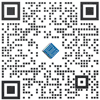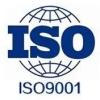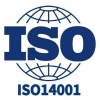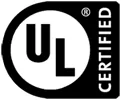Development trend of antenna technology flexible connectors in wearable devices: Miniaturization

Connector manufacturers are not going to miss out on this potentially huge market, and they are already designing and upgrading new connectors for wearable devices. FFC connectors are intended for high-speed series applications with high density crimp and multi-pressure contacts connected to board to board, wire to plate, and wire to wire, while FPC connectors are used to achieve thinner, lighter, and more reliable connections that require smaller pin spacing.
Wearable technology has developed into one of the biggest growth industries in recent years. With the support of the Internet of Things and smart mobile devices, people can feel the changes that new technologies and products bring to their lives, and wearable devices are deeply loved by people.
Most wearables are tiny devices with a strong focus on features such as low power consumption, durability and lightness, which also makes the connectors in wearables have these characteristics. With the trend of device upgrades, connectors have a unique development direction in wearables.
From universal connectors to wearable special connectors.
Wearables can be roughly divided into two types based on their functions, machines that monitor and record data, and machines that improve the Internet. When wearables first became popular, it didn't mean that most manufacturers put wearables connectors on tablets and smart machines.
With the development of miniaturization of wearable devices, coupled with the addition of various functions such as energy saving, high data transmission efficiency and wireless connection, the connector of wearable devices is stipulated to have smaller specifications and better electrical performance. Originally standard universal connectors, in terms of specifications, aesthetics, technical adaptability and other aspects, gradually unable to keep up with the development needs of wearable devices.
Connector manufacturers are not going to miss out on this potentially huge market, and they are already designing and upgrading new connectors for wearable devices. Currently, the connectors for these customized wearable devices are mainly used for antennas, AD650SD sensors, power supplies, battery connections, board-to-board, wire-to-board, and removable storage devices such as I/O connectors, FFC/FPC flexible connectors, Board to Board connectors, molded interconnect devices, etc.
Antenna technology in wearable devices
Needless to say, wearables are closely related to the Internet of Things, so antennas and RF connectors in wearables are very important types of segmentation. As one of the core competencies of connector manufacturers, RF and antenna technology is very important for antenna interconnectors of wearable devices in ensuring the signal and power integrity of intelligent terminals. In the wearables industry, the challenge is that antenna shapes and specifications are getting smaller, and designs are getting more complex.
Since the early days of wearables, several connector head manufacturers have laid out highly compact interconnections for these devices. By combining LDS laser direct molding technology with molded interconnect devices, Molex can greatly improve the signal and power integrity of molded antenna carriers by using laser etching to mold the surface of plastic parts, transferring 3D design to the device or directly molding onto the device. TE's wearables team initially used 3D IDS 3D ink direct molding technology to print antenna patterns on standard substrates, which can greatly save device space. Now the LDS has been developed.
Head connector manufacturers are reportedly developing a transparent, nearly invisible solution for future wearable device antennas.
The miniaturization development of flexible connectors
Wearable devices are a highly limited, space-limited condition that is very favorable for flexible connectors to play. Flexible connectors have become the main way to connect wearable devices. And as wearables shrink further in size, flexible connectors are designed to get smaller, giving designers more space on the circuit board.
FFC connectors are intended for high-speed series applications with high density crimp and multi-pressure contacts connected to board to board, wire to plate, and wire to wire, while FPC connectors are used to achieve thinner, lighter, and more reliable connections that require smaller pin spacing. With a slim appearance, these connectors are extremely flexible and can provide very high density. For example, FCI Basics, the main flexible connector series of the famous connector head manufacturer Amfino in wearable devices, has an FPC interdata of 0.21mm, which is the first extremely high product in the industry below 1mm. Only the FPPC with a direct space distance of less than 0.5mm can be guaranteed.
In fact, flexible connectors are not only miniaturizing, but also gradually moving toward high frequencies, further improving device performance while saving space. By adding wiring layer and elastic structure design to form circuit impedance, flexible connector generates high-speed transmission circuit, which meets the requirements of high frequency and high speed transmission. Wearable devices are urgently needed to enable high-speed transmission in tight indoor Spaces.
Naturally, the thinner appearance requires a high level of material selection and processing. At present, the performance of domestic flexible connector manufacturers in the wearable field is very good. The technology of 0.5mm interval products has been very mature, and the price is more competitive, which occupies a very large share in the wearable market. However, domestic manufacturers can reach 0.2mm below 0.3mm spacing is not many, in order to ensure the product yield on the basis of reducing the interval is not overnight.
Conclusion
Connectors in wearable devices need to be small and high performance interconnected. In addition to the above connectors, wearable devices in high-speed USB connectors, wireline board connectors, etc. Are personalized iterations based on wearable device upgrades.
Die Produkte, an denen Sie interessiert sein könnten
 |
356 | TRIMMER 10K OHM PC PIN TOP ADJ | 8928 More on Order |
 |
2677 | QI WIRELESS CHARGING RECEIVER | 4104 More on Order |
 |
1194 | SWITCH PUSHBUTTON SPST-NO BLUE | 8334 More on Order |
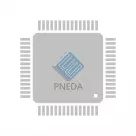 |
3978 | SENSOR OPTICAL 30-1200CM ANALOG | 5544 More on Order |
 |
984 | MAXSONAR RANGEFINDER HRLV--EZ1 | 4608 More on Order |
 |
9 | MAGNET 0.5""DIA X 0.197""H ROUND | 5022 More on Order |
 |
372 | THERMISTOR NTC 10KOHM 3950K | 8724 More on Order |
 |
624 | PANEL ELECTROLUM EL 10X10CM BLUE | 6282 More on Order |
 |
1379 | ADDRESS LED DISCRETE SERIAL RGB | 8082 More on Order |
 |
2734 | ADDRESS LED MATRIX SERIAL RGB | 2106 More on Order |
 |
4310 | FLEXIBLE SILICONE NEON-LIKE SKIN | 6858 More on Order |
 |
2858 | ADDRESS LED MODULE SERIAL RGBW | 8190 More on Order |
 |
2157 | ADDRESS LED 14 SEG I2C WHITE | 6840 More on Order |
 |
1268 | ADDRESS LED 7 SEG I2C GREEN | 7326 More on Order |
 |
1461 | ADDRESS LED STRIP SERIAL RGB 4M | 4608 More on Order |
 |
3649 | ADDRESS LED MATRIX SERIAL RGB | 4392 More on Order |
 |
3634 | ADDRESS LED STRIP 1M | 5220 More on Order |
 |
2856 | ADDRESS LED RING SERIAL RGBW | 6324 More on Order |
 |
3855 | ESPRUINO PIXL.JS - JAVASCRIPT MI | 4284 More on Order |
 |
2406 | HDMI 7 800X480 DISPLAY BACKPACK | 6714 More on Order |
 |
1770 | 2.8"" TFT LCD TOUCHSCREEN | 2100 More on Order |
 |
314 | LED RGB DIFFUSED 5MM ROUND T/H | 8118 More on Order |
 |
1447 | ASSEMBLED STANDARD LCD 16X2 + EX | 3834 More on Order |
 |
784 | USB + SERIAL BACKPACK KIT | 4446 More on Order |
